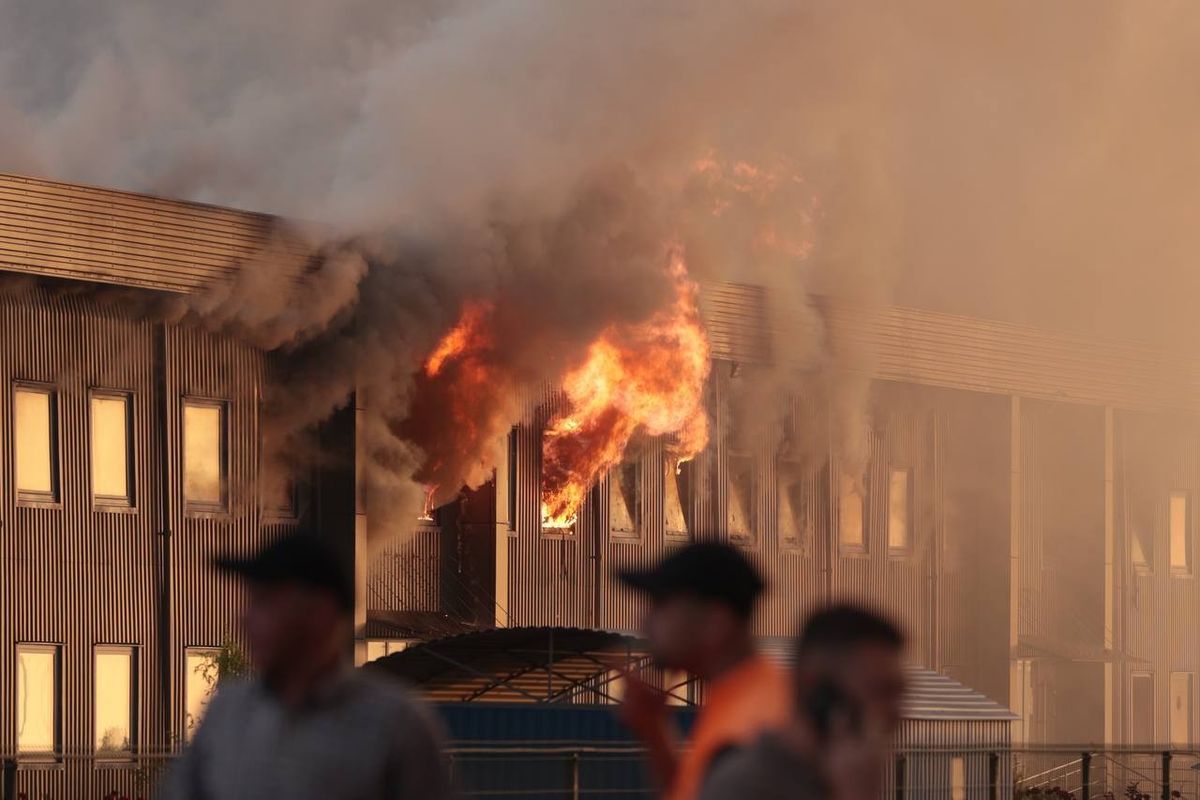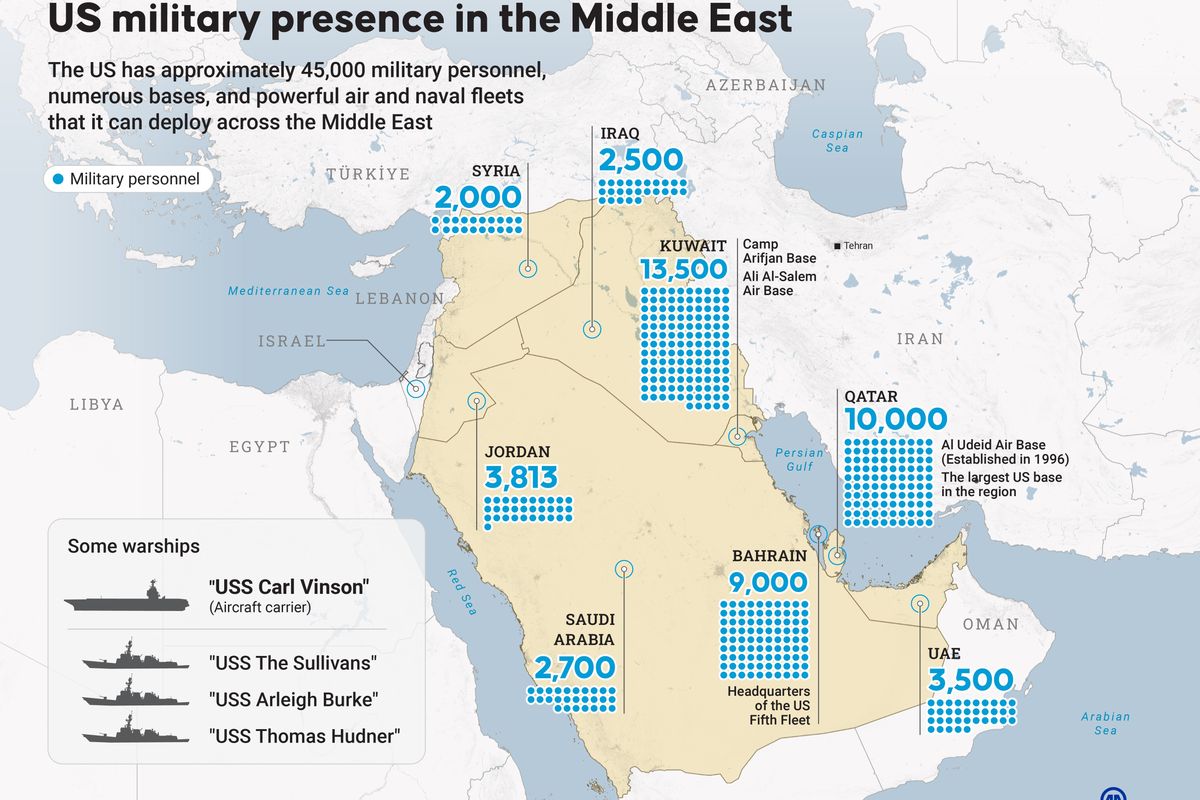Speaking to the nation in his first prime time speech, President Donald Trump laid out his administration’s new strategy for the United States’ war in Afghanistan. “From now on, victory will have a clear definition,” he said, “attacking our enemies, obliterating ISIS, crushing al Qaeda, preventing the Taliban from taking over Afghanistan, and stopping mass terror attacks against America before they emerge.” Trump also made plain that he intended to change the way the U.S. holds Afghanistan – and critically, Pakistan – accountable in the fight against the Taliban in South Asia.
The Cipher Brief’s Callie Wang asked General Jack Keane, the former Vice Chief of Staff of the U.S. Army, for his thoughts on the speech, and how it represents a new approach compared to the last 16 years of war.
The Cipher Brief: Do you think President Trump make clear what his objective is for Afghanistan, and do you feel the strategy is consistent with that objective?
General Jack Keane: Yes, I really applaud the speech because the President was very direct, very honest. There was no political deception, as we have been used to in the past. He clearly committed the political and moral will of the United States to succeed in Afghanistan, as part of the much larger conflict with radical Islam.
He introduced new pillars to the strategy, which will clearly have a positive impact. Number one, operations in Afghanistan will be conditioned by what’s taking place on the ground, not arbitrary timetables. Number two, we are not going to nation build. We’re there to kill terrorists. Number three, there is a clear recognition that our regional allies have a large role to play: India, economically and diplomatically, and Pakistan, by stopping the support of the Afghan Taliban via the safe havens and sanctuaries they provide.
This was the first American President in 16 years to make a commitment to stop that activity, which has been simply outrageous. This is an ally providing direct - not indirect - support to the Taliban in terms of intelligence about our operations, training, logistical support and financial assistance, not the least of which is a bona fide sanctuary.
TCB: He very specifically did not mention a timeline for this - what are we to draw from that? And similarly, he said that it’s not a blank check – what would you say that Afghanistan has to do to demonstrate their commitment?
Keane: I also applaud that he didn’t have a timeline, which was a departure from the Obama Administration. Obama doomed us when, while escalating the war with the Afghan surge, he said in the same announcement that we would pull out in 18 months. This made the Taliban realize all they had to do was stay away from us for 18 months, and they’d be able to resurrect their activities, which is exactly what happened. It was foolishness, to the height of irresponsibility.
What President Trump is clearly saying is that we’re going to conduct operations based on the reality on the ground, and we’re also going to hold the Afghan government accountable. He didn’t lay out how, and I think it would have been inappropriate for him to do so.
But, we can surmise that he wants to improve the effectiveness of that government and ensure it is conducting effective anti-corruption campaigns and contributing to the overall stability and security of Afghanistan.
There’s much that that government has to do, and I’m convinced the President and his team will lay out, pretty clearly, what they expect from Ashraf Ghani. I know Ashraf Ghani. He will absolutely applaud this speech tonight. Being held accountable by the U.S. President will give him some levers that he can use politically inside his country that will actually help him achieve those results.
TCB: You’ve mentioned a couple of ways the strategy diverges from that of the Obama Administration. The president also mentioned lifting certain restrictions on warfighters and expanding the authority of wartime commanders – what difference will that make in your eyes?
Keane: What he’s trying to do is improve the effectiveness of our ground and air operations. He’s going to have advisors down at lower levels so they can assist the Afghans with their own performance and also facilitate the effective use of airpower. He’s easing up on the rules of engagement so that when we have a target we don’t have to ask permission to fire at that target - and get a bunch of lawyers involved. He’s relying on the judgment of the commanders to make those kind of calls in a combat situation and not have to ask permission. That just makes for very responsive operations.
[The Taliban] is very familiar with our rules of engagement. It takes too long for us to get permission to shoot at the target. The Taliban senses what’s going on and simply drives next to a building. We’re not going to hit the building because there could be people in those buildings. They know our rules of engagement. We’ve had our pilots almost run out of gas flying in circles, waiting for permission.
This will have a larger impact than people realize on the effectiveness of our military operations.
TCB: How important is the Pakistan piece of the strategy and is it achievable? Pakistan has beguiled the U.S. for years – do you believe that change can happen in this?
Keane: Pakistan has certainly gamed us for 16 years. They have never believed that we’re serious about winning, and I would have to agree with them. We never put a team on the field that was committed to winning. President Bush had another priority: Iraq. We had inadequate resources in Afghanistan. President Obama had no will to win. He was too concerned with having our troops exit concurrent with the end of his administration.
President Trump has started the effort. We must convince the Pakistanis that the U.S. has the will to succeed, and he began that tonight. That will take some further indications, certainly. I believe the pressure they are going to put on the Pakistanis will be unlike any Pakistan has felt before. And even though the President didn’t say it, I am convinced he will target the sanctuaries; he will violate Pakistan’s sovereignty to do it, something we’ve been unwilling to do. He’s going to give Pakistan an opportunity to do something about it, certainly, but he said “one way or the other, this is going to end” – and that’s what he means.
When Secretary of State Rex Tillerson talks to them, he will say, “you can have this the easy way or the hard way. If you want to work with us, then stop aiding the Afghan Taliban and these sanctuaries. We are not going to put up with this.”
And that’s a game changer.
TCB: Are there any potential unintended consequences to this strategy?
Keane: We don’t know what the numbers are, though there is speculation that he is going to increase the number of advisors by thousands, and I assume special operations forces also. I don’t know if he’s going to put some of the enablers back into the Afghan National Army that were taken out – the lack of which made them considerably less effective.
It’s likely the military forces we’ll add will be helpful but they are not going to be decisive, certainly not in the near term. It will take some time for that strategy to unfold – India’s economic assistance to Afghanistan, the diplomatic pressure we will apply to Pakistan, etc.
I think what’s unstated is that we could get some quick victories in Afghanistan and turn the momentum to the Afghans favor, but that would take a surge of U.S. combat forces. After 16 years in Afghanistan, that’s not politically doable. It was, obviously, in 2009, and it certainly was in 2001. But eight years after the last Afghan surge, with not much to show for it, it’s just not viable. I don’t think it was ever considered as an option, but they have worked considerably more aggressively on the strategy, rather than tactically with the number of troops.
TCB: Nearly 16 years later, did you ever expect we would still be having this conversation about Afghanistan?
Keane: I knew we would when Obama made the political decision in 2009 not to give Generals McChrystal and Petraeus the minimum force they needed to win. He gave them 25 percent less. And, when he announced the deployment of that force, he also announced the withdrawal of it 18 months later.
So, in 2009 at West Point, I knew we had a protracted war on our hands that was not winnable and that it was likely that President Obama was just passing the eventual accountability for this war to his successor. I knew that the next president would have to resolve this one way or another.













